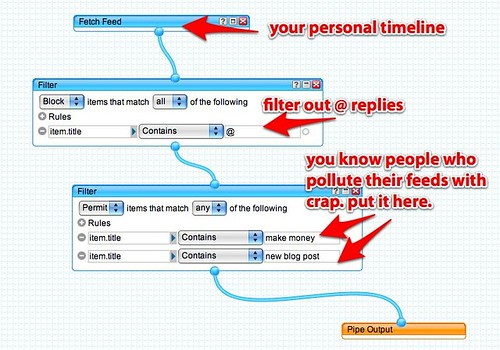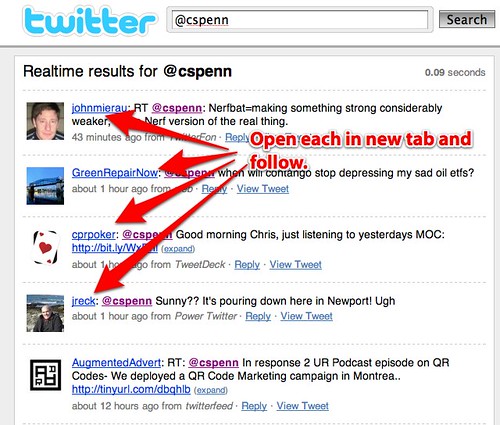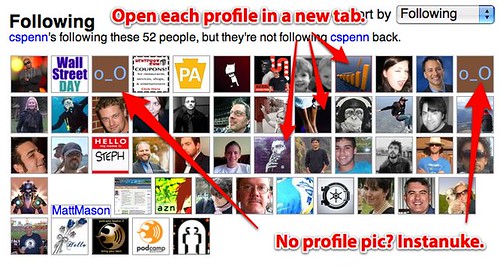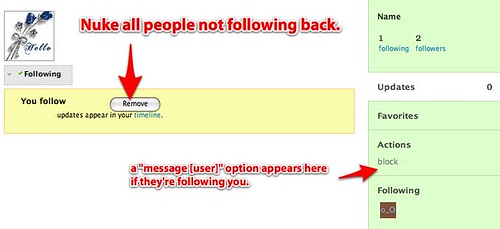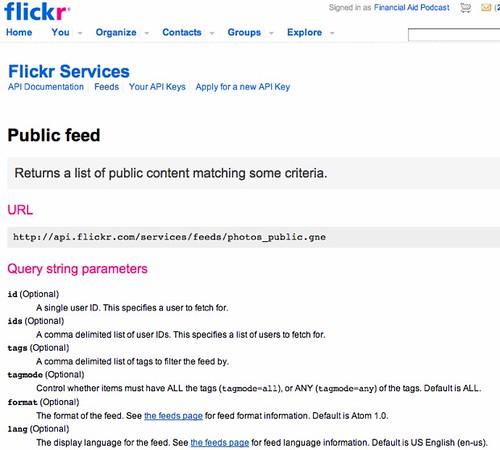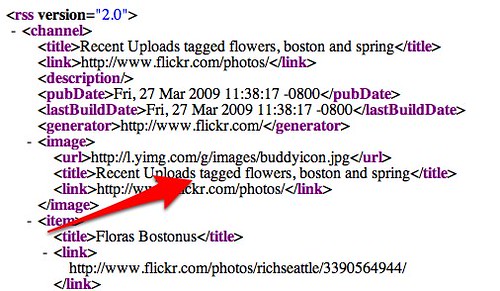Twitter’s the hot new thing, the shiny object du jour. As such, it’s also turned into a massive cesspool of spam from marketers desperate to try hawking their ineffective wares in another channel, hoping against hope that consumers on Twitter are not as smart at filtering them out as they are in other media.
Sorry, guys. This blog post is about making your life harder.
Here’s how to identify Twitter spammers in your personal timeline using Yahoo Pipes.
Go to Yahoo Pipes and start a new pipe. Grab a Fetch Feed box from Sources and drag it into the worksheet.
In the box, insert your Twitter personal timeline. It’s formatted like this:
https://username:[email protected]/statuses/friends_timeline.rss
where obviously username and password are your Twitter username and passwords.
Next, drag two filter boxes from Operators. Drag the blue circle at the bottom of the Fetch Feed to the first Filter box.
Then drag the blue circle from the bottom of the first Filter Box to the second, and from the bottom of the second to Pipe Output.
Set the first to Block All and the second to Permit Any.
In Block All, set the item title dropdown to @. This filters out @ replies, since those are likely to be a little more legitimate than pure crap tweets. Not much, but at least a little.
In the Permit Any filter, start adding text in for the tweets you know are garbage. Typically they have “make money” in them, words like “F*R*E*E” and other useless fare. Add these line by line until you have a list of the garbage.
Name, save, and run the pipe. If all goes well, you’ll see a screen with options.
From that RSS box, you can subscribe to this Yahoo Pipe in the feed reader of your choice. All of the tweets that end up in it should be crap, which you can then promptly unfollow either manually from your feed reader or automatically if you’re handy at writing against the Twitter API.
Next, grab a beer, wait a few days for the pipe to fill up, then say farewell to people using Twitter as just another dumping ground or a meager prop for their failed business model as you unfollow them.
Did you enjoy this blog post? If so, please subscribe right now!
Get this and other great articles from the source at www.ChristopherSPenn.com
